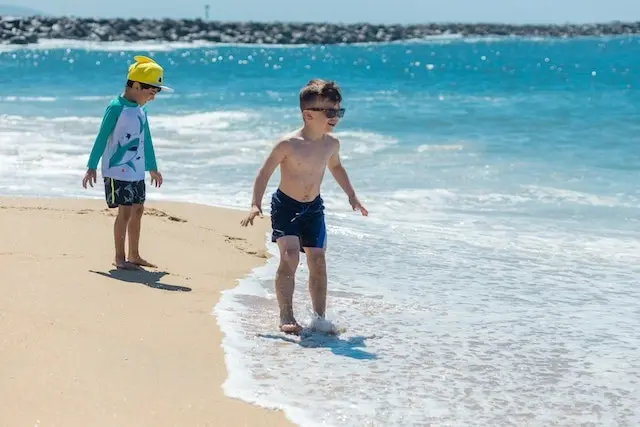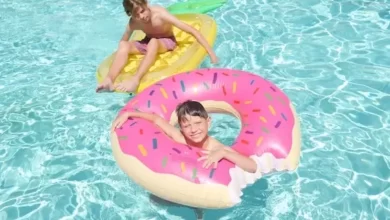9 tips on baby swimming games and activities: Dive into fun with excitement
Are you looking to make your little swimmer’s time in the water enjoyable, and memorable? Then you are in the correct place. We are going to discuss baby swimming games and activities in this article. These activities will bring joy and happiness to the pool and contribute to your baby’s physical, cognitive, emotional, and mental improvement. Get ready to have fun with your little shining star and make a splash in the world of baby swimming!
In this article,
Why are baby swimming games and activities important?
Baby swimming games and activities are not just about water play but are also a gateway to a myriad of benefits. Even these activities boost your baby’s confidence in the water, enhance their motor skills, and promote a positive relationship with the aquatic environment. As they engage in water play, babies are swotting and growing while having a blast!
What are some beginner-friendly water games for babies?
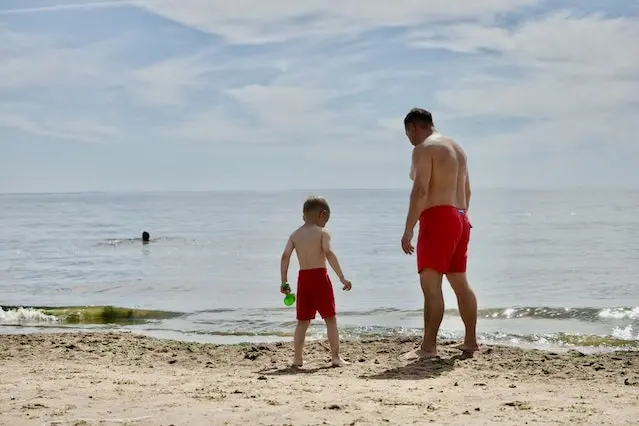
- Floating friends parade: Begin with simple yet captivating activities like creating a “floating friends parade.” Use brightly coloured and floatable toys to capture your baby’s attention. Watch as their eyes light up when they see these toys drifting by, Cheer them up to reach out and interact.
- Bubble-blowing bonanza: Glitter your baby’s curiosity with the mesmerizing world of bubbles. Gently blow bubbles on the water’s surface and watch as your baby follows their path. This activity not only entertained them but also introduced them to the concept of cause and effect.
How can I introduce my baby to playing underwater?
Introducing your baby to underwater play. It requires patience and trust, and you will find gradual progress in your baby. Begin by pouring water gently over your baby’s head, ensuring they feel comfortable and secure. As they become used to this sensation, you can slowly progress to gentle submersions, making sure to maintain eye contact and offer plenty of confidence.
What are some interactive games for babies who enjoy movement?
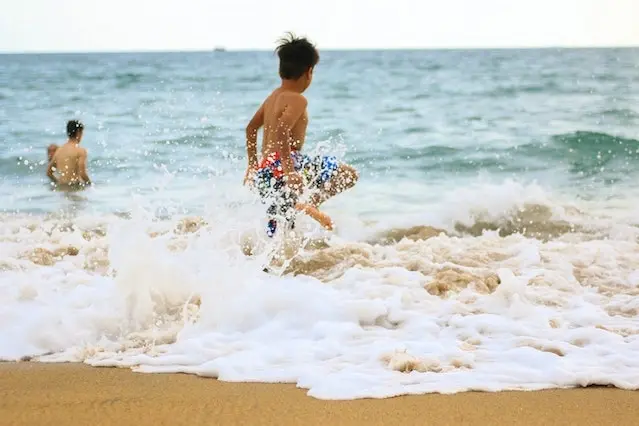
- Splash and Catch: If your little one loves movement, “Splash and Catch” is a wonderful game. Hold your baby under their arms, allowing their legs to kick and make delightful splashes. Lift them out of the water in a playful catching” motion, evoking laughter and excitement.
- Row, row, row your boat: Turn a classic nursery rhyme into a watery adventure. Seat your baby on your lap, and gently rock side to side, imitating the rocking of a boat. The rhythmic motion and coordination.
How can I incorporate songs and rhymes into swimming activities?
Songs and rhymes bring a musical twist to water play. Adding an extra layer of engagement and enjoyment Incorporate familiar nursery rhymes and water-themed songs into your activities. The rhythm of the songs not only upgrades your baby’s mood but also helps them associate water play with positive emotions.
What are some water activities that aid in building water confidence?
- Back float exploration: Building water confidence is a gradual process. Encourage your baby to float. And help them feel secure, which opens the door to water exploration.
- Belly time fun: Transition to belly-down floating, encouraging your baby to experience the water from a different angle. This activity builds up core strength and balance while introducing new viewpoints.
How can I enhance my baby’s sensory experience in the water?

- Texture discovery: Water play is a magnificent opportunity to explore different textures. Introduce water-safe materials like soft sponges or smooth cups for your baby to touch and investigate.
- Colourful water play: Boost your baby’s sensory experience by adding a drop of baby-safe food colouring to the water. Watch as the water transforms into a palette of colours, captivating their attention and stimulating their senses.
What safety precautions should I keep in mind during water games?
Safety is most important during water play. Regardless of the water depth, constant supervision is essential. Always be attuned to your baby’s comfort level and never force any activity. Maintain the water at an appropriate temperature to prevent discomfort or chills.
How can I turn water games into learning opportunities?
- Counting with splashes: Merge play with learning by including counting in your activities. Count aloud as you create splashes, encouraging your baby to associate numbers with fun water movements
- Floating object recognition: Use floating objects as a base for cognitive development. Name the toys and their colours as your baby reaches for them, helping them associate words with objects and enhancing their vocabulary.

Conclusion
From beginner-friendly activities to interactive games and sensory explorations, the possibilities in the world of baby swimming are endless. As you take off on this journey, always prioritize safety, comfort, and your baby’s cues. Every joyful moment in the water promotes growth, confidence, and a lifelong love for swimming.
Are baby swimming games and activities safe for my baby?

Definitely, baby swimming games and activities can be safe and enjoyable for your baby. However, it’s pivotal to prioritize safety at all times. Always provide constant supervision while your baby is in the water, regardless of the water’s depth. Follow the guidance of certified instructors or swim coaches if you’re participating in arranged classes.
How can baby swimming games and activities contribute to my baby’s development?

Baby swimming games and activities offer an entire approach to your baby’s development. Physically, these activities help strengthen muscles, improve coordination, and build motor skills. Sensory experiences in the water stimulate their senses and cognitive development. Moreover, water play fosters social interaction between you and your baby and builds emotional bonds.
Can I practice baby swimming games and activities at home, or must I enrol in a formal class?
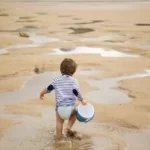
You can practice baby swimming games and activities at home, but participating in a formal swim class can offer unique benefits. Enrolling in a class led by certified instructors provides a structured environment where your baby can interact with other babies and learn under expert guidance. In a class setting, your baby may also have access to specialized tools and resources that can build up their aquatic experience.
